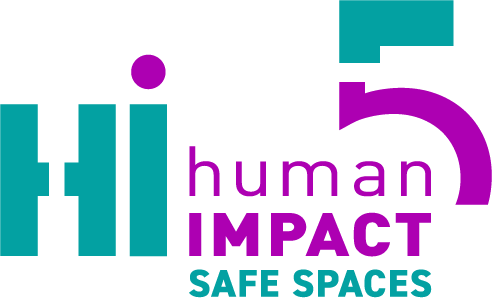Person of Trust (Ombuds) Services

Gabrielle Landry Chappuis and Catherine Delteil are certified Organizational Persons of Trust (Organizational Ombuds) to help prevent and address workplace psychosocial risks.
In Switzerland, all employers are legally required to protect their employees (in addition to physical workplace safety risks) from psychosocial risks. This means that employers are bound to ensure prevention from burnout, sexual harassment, moral harassment, mobbing, conflict, etc.). Several legal instruments are in place including Swiss labor law article 6 and the related ordonnance 3; the Code of Obligations, articles 321 a and b (for employees) and 328 (for employers); the Swiss Federal Act on Gender Equality, for example articles 3 (discrimination) and 4 (sexual harassment); and the Swiss Federal Tribunal rulings on 9 May 2012 concerning the requirement to have a trained and extra-hierarchical person of trust. Our services fulfill this requirement.
What is psychosocial risk?
Psychosocial risks in the workplace generally emanate from issues around inadequate work design, management, and unhelpful interpersonal interactions at work. We generally include broad aspects of burnout, moral harassment, mobbing, sexual harassment, unresolved conflict, excessive stress, and discrimination. They can result in negative psychological, physical and interpersonal outcomes. A few common causes of psychosocial risk are as follows (non-exhaustive):
- excessive workload over extended periods of time;
- conflicting demands and lack of role clarity;
- lack of control or influence in decisions taken that affect the worker;
- lack of influence over how a job is carried out;
- poorly managed organisational change;
- job insecurity;
- sabotaging of one’s work, isolation
- ineffective communication, also including insults and humiliation;
- lack of support from management or colleagues;
- intimidation or coercion to undertake unethical behaviours;
- ill treatment by customers, beneficiaries, patients, or other stakeholders
What we offer
Working as a team with a network of qualified experts in diversity, equity and inclusion, human resources, change management, ethics and legal issues, Hi5 Safe Spaces offers to small and large organizations in any sector the following Person of Trust/Ombuds services, adaptable and scalable to any type of organization.
Set up
We review the current organizational policies and grievance mechanism or help to build them where needed. Risks or improvements are identified and the mechanism is refined with a view to being simple, robust, and trusted by employees. The role of the Person of Trust/Ombuds in this system is generally a support measure, rather than a formal complaints mechanism. ‘Get support’ is where employees are directed to the Person of Trust/Ombuds, and ‘report’ points to the official pathways to report issues in the workplace. Any organization, large or small, should ideally have some form of external and anonymous way to report concerns.
Prevention/sensitization sessions
When a Person of Trust/Ombuds role is introduced, and thereafter generally on an annual basis, a sensitization session on psychosocial risk (conflict, burnout, sexual and moral harassment, mobbing, etc.) is provided to all staff, with a specific segment for managers only who are also trained on receiving complaints in a psychologically safe and appropriate manner.
Consultation/intervention
This entails the consultation services of the Person of Trust/Ombuds. A dedicated email and telephone number are provided to all staff of the organization to reach out in case of need. These consultations sessions aim to help the person seeking the service to gain clarity, generate greater ‘internal resource’ to handle the issues at hand, or take their own decisions on a course of action, for example using the organization’s formal complaints mechanism, seek mediation, or get other help as necessary. In many cases, the sheer act of having the Person of Trust/Ombuds listen without judgement and helping the person to think things through in a psychologically safe support environment is enough to help the person resolve the issues on their own. In some cases, a need arises to have the Person of Trust/Ombuds person accompany the person further (e.g. meeting with HR, with a manager, or in complaints process).
Confidentiality
The Person of Trust/Ombuds consultations are confidential. The Person of Trust/Ombuds reports only on semi-annual/annual statistics (e.g. number of consultations, general organizational issues) to the organization, and may counsel the organization to undertake certain prevention and corrective measures for the benefit of all employees.
Mediation
If, during a conversation, a need for mediation is identified, and prior agreement is given by our client organization, the Person of Trust/Ombuds proposes their colleague to lead the mediation in order to maintain neutrality and impartiality. In specific cases, we will suggest other mediators. In short, the Person of Trust/Ombuds does not mediate if he/she has had consultations with one or the other party in need of mediation in order to maintain neutrality and impartiality.
The separation of the role of Person of Trust/Ombuds and Mediator recommended in the Code of Ethics of the ASPCE (in French)
Inquiry (investigation)
As indicated by the Cantonal Office of Inspection and Labour Relations of Geneva (OCIRT) and the Code of Ethics of the ASPCE (see link above), the Person of Trust/Ombuds does not conduct an investigation but may propose a qualified person from our pool of investigators when necessary.
Year round coverage
We offer year round coverage of our services. If one dedicated Person of Trust/Ombuds is absent, the service is maintained by the available Person of Trust/Ombuds.
We currently offer services in English, French, Spanish, and Dutch.
I'm interested in your person of trust services!
We’d love to hear from you! If you want to learn more about our person of trust services, reach out to us today to take a first step together.
